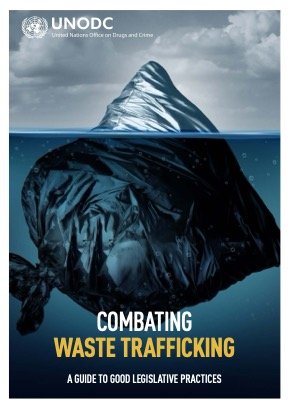By The United Nations Office on Drugs and Crime (UNODC)
Crimes that affect the environment are among the most profitable and fastest growing types of international criminal activity. In resolution 10/6, adopted in 2020, the Conference of the Parties to the United Nations Convention against Transnational Organized Crime expressed its alarm at research indicating that crimes that affect the environment had become some of the most lucrative transnational criminal activities and were often closely interlinked with different forms of crime and corruption, and that money-laundering and the illicit financial flows derived from them may contribute to the financing of other transnational organized crimes and terrorism. It affirmed that the Organized Crime Convention constitutes an effective tool and an essential part of the legal framework for preventing and combating transnational organized crimes that affect the environment and for strengthening international cooperation in this regard and requested the United Nations Office on Drugs and Crime, subject to the availability of extrabudgetary resources, and within its mandate, to provide technical assistance and capacity-building to State parties, upon request, for the purposes of supporting their efforts to effectively implement the Convention in preventing and combating transnational organized crimes that affect the environment. In 2019, the Conference of the States Parties to the United Nations Convention against Corruption, in its resolution 8/12, noted with concern the role that corruption can play in crimes that have an impact on the environment and expressed concern that money-laundering may be used to disguise and/or conceal the sources of illegally generated proceeds, as well as to facilitate crimes that have an impact on the environment. In 2021, the Fourteenth United Nations Congress on Crime Prevention and Criminal Justice adopted the Kyoto Declaration on Advancing Crime Prevention, Criminal Justice and the Rule of Law: Towards the Achievement of the 2030 Agenda for Sustainable Development, in which it reiterated the United Nations commitment to adopt effective measures to prevent and combat crimes that affect the environment, including, among other crimes, illicit trafficking in hazardous and other wastes, by making the best possible use of relevant international instruments and by strengthening legislation, international cooperation, capacity building, criminal justice responses and law enforcement efforts aimed at, inter alia, dealing with transnational organized crime, corruption and money-laundering linked to such crimes, and illicit financial flows derived from such crimes, while acknowledging the need to deprive criminals of proceeds of crime.2 In the same year, the General Assembly, in its resolution 76/185, urged Member States to take these same measures.
Vienna: UNODC, 2022. 133p.






